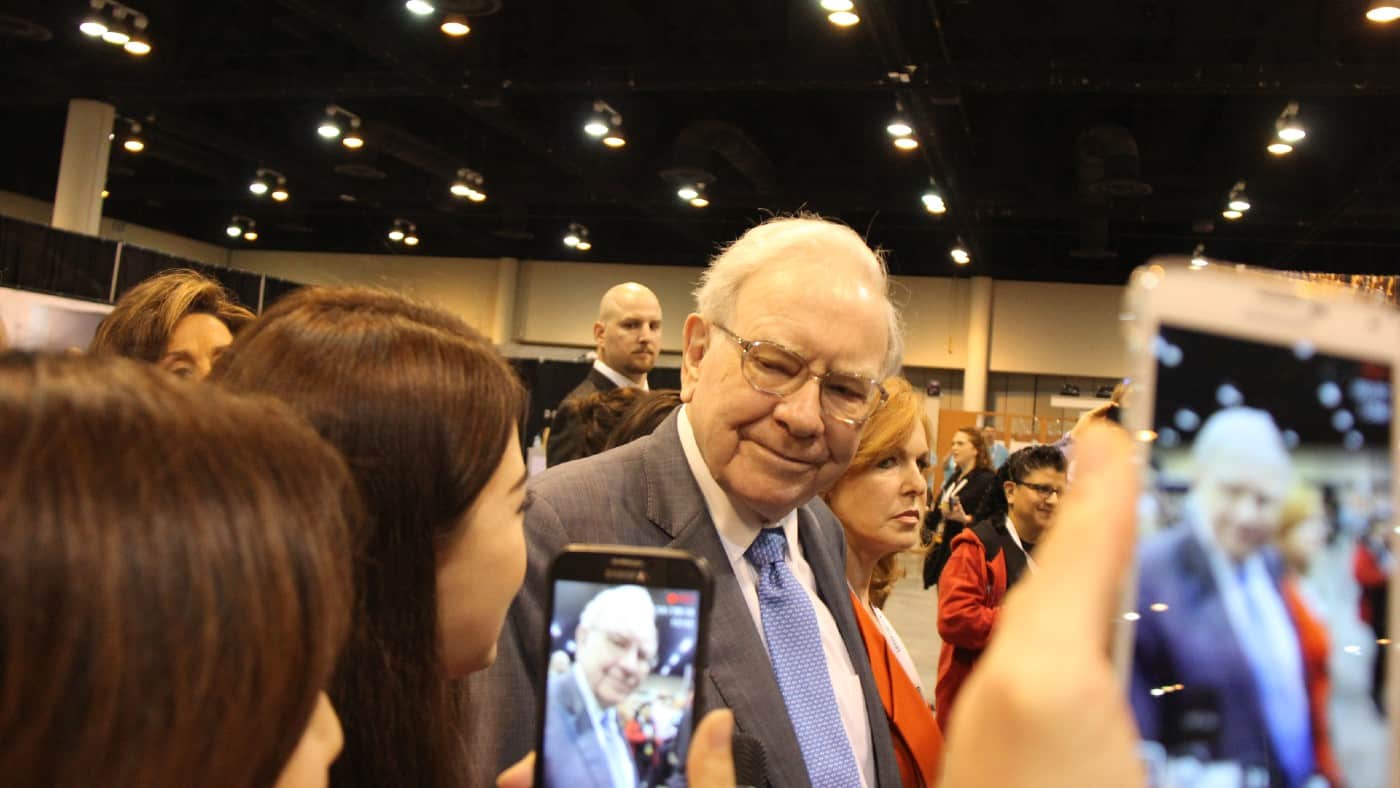
Image source: The Motley Fool
When new to the world of investing, seeking sound advice from the world’s most successor investor – Warren Buffett – is likely a wise move. Fortunately, he’s been quite generous over the years with his investment advice. And following three of his most important lessons can potentially turn even a small initial investment, say £500, into a far more substantial nest egg.
“Never invest in a business you cannot understand”
There are thousands of stocks listed in the UK and across the pond. This means investors have ample choice, but there are numerous circumstances where a business can be immensely complicated or require a nuanced understanding of the sector.
In Buffett’s case, the technology sector is an area he actively avoided until more recently in his investing career. Instead, he favoured relatively simple companies like Coca-Cola (NYSE:KO). A beverage business is fairly straightforward. And by keeping things simple, it becomes far easier to spot risks and potential opportunities.
Using Coca-Cola as an example, a key risk factor is potential price fluctuations of the ingredients for its various drinks. As for opportunities, the firm has an established footprint in almost every market worldwide today, providing the valuable infrastructure to roll out new products in the future.
“Find a business with a wide and long-lasting moat”
Every business, even the largest enterprises in the world, can potentially be disrupted. However, the best defence against competitive threats is an established ‘moat’ of advantages that gives a company the upper edge over its rivals.
Looking back at Coca-Cola, the company has a globally recognised brand dating back to the late 1800s. In fact, that’s why the company still sells 1.9 billion servings of its drinks every day despite countless Coca-Cola clones.
Branding and reputation aren’t the only types of advantages out there. Other examples include:
- Cost/efficiency advantage
- Network effects
- Pricing power
- Market dominance
- First mover advantage
“Our favourite holding period is forever”
Buffett only buys businesses he’s willing to hold for a very long time, stretching into decades. In the long run, the performance of a stock is highly correlated with the performance of the underlying business. And businesses don’t suddenly boom or go bust overnight.
Instead of fixating on short-term excitement or panic surrounding quarterly earnings reports, he’s focused on management’s ability to deliver on its long-term strategy. That means he often ends up holding through the rough periods as well as the good, and he often leverages volatility to buy more shares at a better price if the long-term outlook remains promising.
Since his initial investment in Coca-Cola in 1988, he’s never sold a single share. And the reward for his loyalty has been over a 6,000% total return.
At a market-cap of over $300bn today, it’s unlikely that Coca-Cola will deliver a 60x return anytime soon. After all, that would require the business to reach a market-cap of $18trn. However, Coca-Cola still serves as an excellent example of how a simple company with a wide competitive moat held in the long run can deliver transformative gains. And to put this into perspective, a £500 initial investment in 1988 would now be worth over £30,000!









